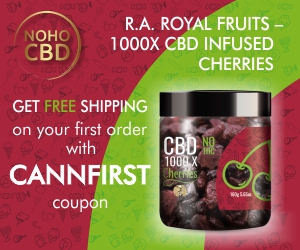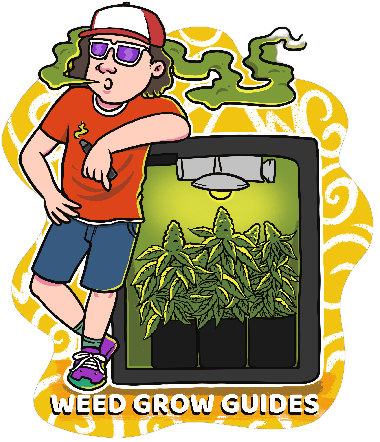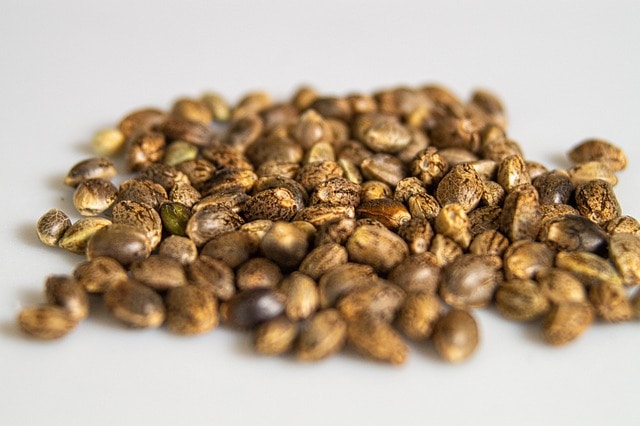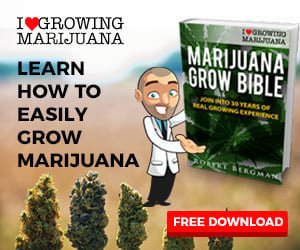Cannabidiol also known by its shorter name CBD is a chemical in the weed or marijuana plant, also known as cannabis or hemp. One specific form of CBD is approved as a drug in the U.S. for seizures. Over 80 chemicals, known as cannabinoids, have been found in the marijuana plant. Delta-9-tetrahydrocannabinol (THC) is the most famous ingredient in cannabis. Why? Because this is the part that makes people get that traditional “high” feeling you have heard about.

But CBD is obtained from hemp, a form of the cannabis plant that only contains small amounts of THC, almost nothing. CBD seems to have effects on some chemicals in the brain, but these are different than the effects of THC.
Cannabinoids like THC and CBD interact with the human body via the endocannabinoid system, or ECS for short. The ECS is responsible for regulating bodily functions like sleep, our immune systems, as well as mood.
However, where THC produces a tell-tale ‘high’, CBD is entirely non-euphoric, this has made it a very attractive, very legal option for many looking to incorporate it into their lifestyle to balance their health and wellbeing.
A prescription form of CBD is used for seizure disorder (epilepsy). CBD is also used for anxiety, pain, a muscle disorder called dystonia, Parkinson disease, Crohn disease, and many other conditions, but there isn’t enough quality scientific evidence to support these uses yet.
Laws passed in 2018 made it legal to sell hemp and hemp products in the US. That doesn’t mean that all CBD products made from hemp are legal. Since CBD is an approved prescription drug, it can’t be legally included in foods or dietary supplements.

CBD can only be included in “cosmetic” products. There are still CBD products on the market that are labeled as dietary supplements. The amount of CBD contained in these products is not always the same as what is stated on the label, so be careful of what you are buying.
Why You Should Start Taking CBD
Scientists are only just beginning to discover the benefits of CBD oil and it’s only recently that the widespread importance of ECS to health has been revealed.
What we do know is that our bodies make unique endo-cannabinoids from the fats found in cell membranes. These cannabinoids interact with receptors located around your body and help to regulate a wide range of functions.
Like anything else, poor lifestyle choices, diet, aging, stress, and injury can all take their toll and hinder the body’s ability to regulate endocannabinoid levels. It is a natural, plant-based supplement that may help “top-up” the endocannabinoid levels and balance your ECS.
Uses & Effectiveness
Likely Effective for
- Seizure disorder (epilepsy) A specific prescription product (Epidiolex, GW Pharmaceuticals) is approved by the US FDA to treat seizures caused by Dravet syndrome, Lennox-Gastaut syndrome, or tuberous sclerosis complex. It is unclear if other forms of CBD are helpful for seizures. For now, stick with the prescription product.
There is interest in using CBD for a number of other purposes, but there isn’t enough reliable information to say whether it might be helpful for these uses.
Possibly Effective for
- Multiple sclerosis (MS) A prescription-only nasal spray product (Sativex, GW Pharmaceuticals) containing both 9-delta-tetrahydrocannabinol (THC) and cannabidiol has been shown to be effective for improving pain, muscle-tightness, and urination frequency in people with MS.
This product is used in over 25 countries outside of the United States. There just is inconsistent evidence on the effectiveness of cannabidiol for symptoms of multiple sclerosis when it is used alone.

Some early research suggests that using a cannabidiol spray under the tongue might improve pain and muscle tightness, but not muscle spasms, tiredness, bladder control, mobility, or well-being and quality of life in patients with MS.
Side Effects
When taken by mouth: CBD is safe to take in appropriate doses. Doses of up to 200 mg daily have been used safely for up to 13 weeks. With the guidance of a healthcare provider, a specific prescription CBD product (Epidiolex) has been used at higher doses and for longer durations. Follow the label, start at a fraction of the suggested dose until you know how you feel. Like anything start slow if you are nervous or concerned. Good news is you shouldn’t notice any difference except you don’t feel as bad after a little while.
CBD can cause some side effects, such as dry mouth, low blood pressure, lightheadedness, and drowsiness. Signs of liver injury have also been reported with high doses of the prescription form of CBD, called Epidiolex.
When applied to the skin: There isn’t enough reliable information to know if CBD is safe or what the side effects might be. Again start in a spot to make sure you don’t have a reaction and then use as described.
How Does the Body Absorb CBD?
The membrane under our tongue is a bit like a gateway to the bloodstream for oils. When you put a few drops of CBD oil in your mouth, it will head straight to your bloodstream without having to pass through the digestive system or liver first if you ingested by a gummy or capsule. This means that the CBD compounds don’t get broken down by enzymes the way they would if they were ingested.

This rapid absorption means that oils take effect almost immediately after administration. However, this rapid absorption rate means that the effects of entering the body more quickly don’t last as long. As such, different strengths of CBD oil (e.g. 500mg, 1000mg, or 2000mg) can have varying effects.
Unlike CBD oil, capsules are swallowed and as such, they are absorbed into the body differently. Where oil sprays or droppers bypass the digestive system, capsules run headlong into it, first, the CBD compounds enter the stomach and then travel to the liver where it is metabolized.
This process reduces the concentration of CBD compounds but there is still enough CBD at an effective concentration that then passes into the bloodstream. The rate of absorption of capsules can be increased by taking them alongside natural fatty foods such as dairy, avocado, nuts, and seeds.
What are the consequences of this kind of absorption? Taking a capsule will not show the same level of immediate effects as taking CBD oil, and the overall benefits may be less acute but they may be longer-lasting. It’s a slow and steady method of using CBD and is easily incorporated into a wellness routine with other supplements.
Special Precautions and Warnings
- Pregnancy and breast-feeding: It may be unsafe to take CBD if you are pregnant or breastfeeding. CBD products can be contaminated with other ingredients that may be harmful to the fetus or infant. Stay on the safe side and avoid use.
- Children: It is possibly safe for children to take a specific prescription CBD product (Epidiolex) by mouth in doses up to 25 mg/kg daily. This product is approved for use in children with certain conditions who are at least 1 year old. It isn’t clear if other CBD products are safe for children and you never should give over the table CBD as it is intended for adults. Don’t get yourself in trouble talk to a doctor and keep them out of reach of your kids.
- Liver disease: People with liver disease may need to use lower doses of CBD.
- Parkinson’s disease: Some early research suggests that taking high doses of CBD might make muscle movement and tremors worse in some people with Parkinson’s disease.
What is the difference between CBD and THC?
While both CBD and THC come from the same type of plant, CBD does not because a “high” or sense of euphoria often associated with the use of cannabis containing THC. So if you’re concerned about being stoned trying to do your day job, then CBD might be the route for you to have that great body feeling without drooling on a counter top because you ate one too many gummies. Both of these are not to be confused with Delta-8 which is a manufactured variant of THC. Make sure to check out our article on Delta-8 if you want to learn more about it.
Are all CBDs equal?
CBD is available in a variety of formulations and products and is sold by countless companies. However, consumers be warned – not all CBD and CBD products are considered equal. It’s important that readers are aware of the following:
CBD and other drugs
Despite CBD’s wide market availability and purported benefits, readers should take away the important lesson that CBD is not risk-free. Other medications you are taking may interact with CBD and cause undesired side effects, namely liver injury.
Talk with your doctor, pharmacist, or other health care provider before considering adding CBD to your regimen.
Does CBD help anxiety and PTSD?
For students with generalized social anxiety, a four-minute talk, with minimal time to prepare, can be debilitating. Yet a small experiment in the journal Neuropsychopharmacology found that CBD seemed to reduce nervousness and cognitive impairment in patients with social anxiety in a simulated public speaking task.
Does CBD help sleep and depression?
Up all hours of the night, stuck watching videos of puppies, working on your job, or doing whatever to kill the time while you try and fall asleep, CBD may be promising as a sleep aid; one of the side effects of the Epidiolex trials for epilepsy was drowsiness.
Be cautions that the side effects could have been because of an interaction with other medications the children were taking to control the seizures. So far, there hasn’t been a randomized, placebo-controlled, on sleep disorders and CBD.

Sleep can be disrupted for many reasons, including depression. Rodents seemed to adapt better to stressful conditions and exhibited less depressive-like behavior after taking CBD, according to a review in the Journal of Chemical Neuroanatomy. “Surprisingly, CBD seems to act faster than conventional antidepressants.
Without clinical trials in humans, psychologists say CBD’s effect on depression is still a hypothesis and not an evidence-based treatment, but that is changing as more studies are under way.
What I can say is I started using CBD for my migraines and sleep problems. I can go a few days without sleeping and not by choice. CBD has helped me finally fall asleep and get some much needs Z’s. Plus growing your own marijuana or CBD using our simple 8 step grow guide is therapeutic in itself.
Is CBD harmful?
If you take pure CBD, it’s pretty safe. Side effects in the Epidiolex trial included diarrhea, sleepiness, fatigue, weakness, rash, decreased appetite, and elevated liver enzymes. Also, the safe amount to consume in a day, or at all during pregnancy, is still not known. I hate that I have to say this but follow the directions and if you are an idiot don’t overdue it. Anything in excess is bad news. Always start slow and light and work your way up when you understand your tolerance and how you react.
Is CBD a scam or not?
A few drops of CBD oil in a mocha or smoothie is not likely to do anything, researchers contend. Doctors say another force may also be at play in people feeling good: the placebo effect. That’s when someone believes a drug is working and symptoms seem to improve. Try for yourself and you decide.
Is CBD regulated?
CBD products aren’t regulated or evaluated by any government agency. Aside from the prescription epilepsy drug Epidiolex, the FDA hasn’t approved any CBD products to my knowledge. This includes cosmetics, foods, dietary supplements, and pet products.
CBD products that claim to prevent, treat, or cure diseases (like cancer and Alzheimer’s disease) also haven’t been approved by the FDA. To try to protect the public’s health, the agency has actually warned companies to stop selling CBD products that claim to cure diseases.
Due to this lack of regulation, there’s a lot of variation in product quality. There’s no guarantee you’re getting what the label says you’re getting. Dosage is also murky territory. Since the FDA hasn’t evaluated CBD products for proper dosage, there are no clear guidelines yet on how much CBD is safe to take — whether it’s in pill, oil, topical form, or delicious gummy.
What Are CBD and THC?
CBD stands for cannabidiol, and THC stands for tetrahydrocannabinol, both of which are substances found in cannabis plants, marijuana plants, or weed plants. Whatever you want to call them they come from the same place, but they have drastically different effects.
CBD is often sold as oil or gummy, is not psychoactive, and has certain medicinal properties. THC, on the other hand, is the main psychoactive chemical in marijuana. For many, understanding the difference between CBD and THC issue is complicated because the hemp or marijuana plant contains both.
People who abuse marijuana are hooked on the psychoactive properties of THC. While many argue that marijuana is not addictive, it can be habit-forming. As cannabidiol is non-psychoactive, it’s not addictive or habit-forming in itself.
However, people may smoke marijuana to get medical benefits from cannabidiol and develop a habit. Same could likely be said for smoking CBD. You more get hooked to the habit than the CBD. The safest course for getting the medical benefits of marijuana is to use CBD oil by itself. This is the best way to get the benefits of cannabidiol without any psychoactive effects.
When considering CBD vs THC, you also have to keep up with laws, which change frequently. Marijuana and THC are controlled substances under federal law. Because laws are constantly changing and there are often conflicts between state and local laws, the situation is somewhat confusing.
People who want to take cannabis products for medical reasons should check with state laws and make sure they have a valid prescription.
If you are allowed to grow in your area and choose to grow plants like we do you can grow your own organic CBD right from your own living room year round. Use our step by step grow guide and learn ways to use those freshly harvested buds to consume your marijuana or CBD.














